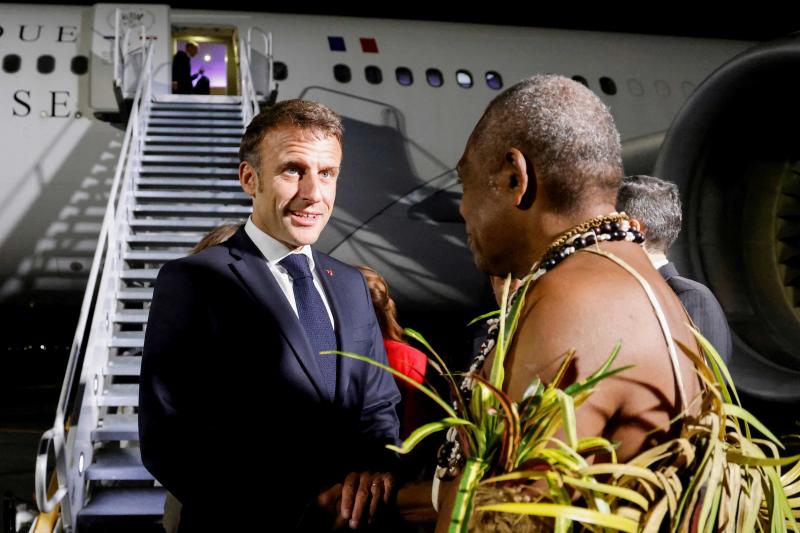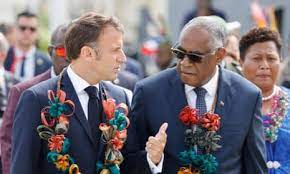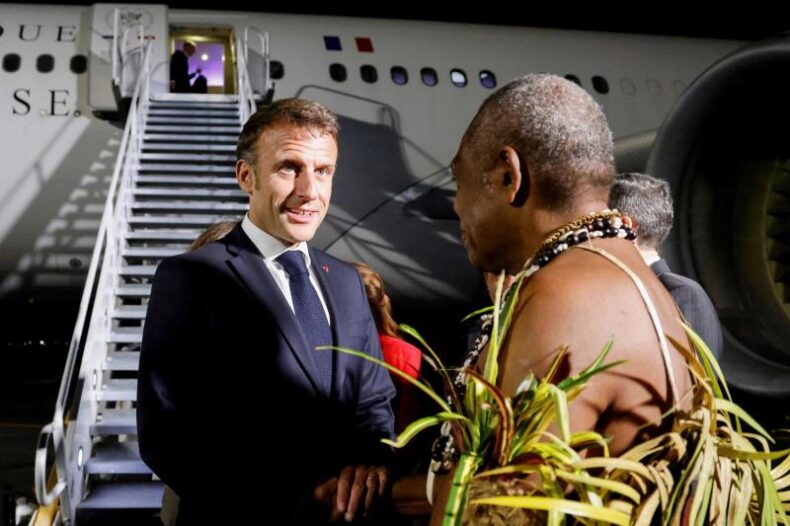In a landmark visit to the Pacific island of Vanuatu on Thursday, French President Emmanuel has denounced “new imperialism” in the Pacific. Warning smaller Pacific island states of the threat to their sovereignty, he said that new imperialism is appearing in the Indo-Pacific and particularly in Oceania. He said, “A power logic (that) is threatening the sovereignty of several states.- the smallest, often the most fragile.”

Brief background:
Earlier on Thursday, the US defense secretary, Lloyd Austin, on his visit to Papua New Guinea (PNG), said that the United States was not looking for a permanent base in the country. He announced that a US coast guard ship would be deployed to the Pacific state. A defence cooperation agreement between PNG and the US was signed in May, providing a framework for US port and airport renovations in PNG for both military and civilian use.
The agreement will allow the deployment of US forces and equipment in PNG. According to Austin, the US wants to “strengthen the PNG’s ability to defend itself and protect its interests.”
With tensions over Taiwan on the rise and Beijing signing a security agreement with the Solomon Islands, the US has been attempting to dissuade Pacific island governments from establishing security ties with China. Over the past ten years, China has been a significant infrastructure lender to countries in the Pacific Islands, including Vanuatu. The International Monetary Fund (IMF) estimates that China’s EXIM bank is Vanuatu’s largest creditor, making up one-third of the country’s debt. The US is now re-opening embassies closed since the Cold War era.
Where does France come in?
Macron’s comments came soon after Austin’s statement. Macron is the first French leader on a visit to an independent Pacific state. In a region where China and the US are vying for military, economic, and diplomatic influence, he seeks to emphasize the importance of France. He mentioned the “predation of big powers” and how “foreign ships fish illegally here.”

The US and its allies are trying to counter China’s emerging influence in the region. France has offered an “alternative” plan to expand natural disaster aid and development. The alternative is meant to help the islands diversify their partnerships and decrease reliance on any one country.
Following U.S. Secretary of Defence Lloyd Austin, who was in Papua New Guinea on Thursday, Macron is scheduled to land there in the evening after his visit to Vanuatu.
Seven overseas territories, including New Caledonia and French Polynesia, are home to more than 1.6 million French nationals. Five years have passed since Macron’s previous journey to the archipelago, and 19 months have passed since New Caledonian voters rejected independence in the third and last referendum on the fate of the island nation.
Emmanuel Macron’s “historic” five-day visit to the Pacific islands of New Caledonia, Vanuatu (non-French territory), and PNG has given him a chance to reestablish France’s legitimacy in the region, which has been challenged by independence movements and US-China influence. France’s Indo-Pacific strategy, according to the French Foundation for strategic research, is to defend its sovereignty interests in the region, which are partially undercut by the rise of military power and China’s behaviour internationally.
France has also boosted its defence ties with India recently and plans to do the same with other countries, such as Sri Lanka, on July 28, as a counter to Chinese influence.












